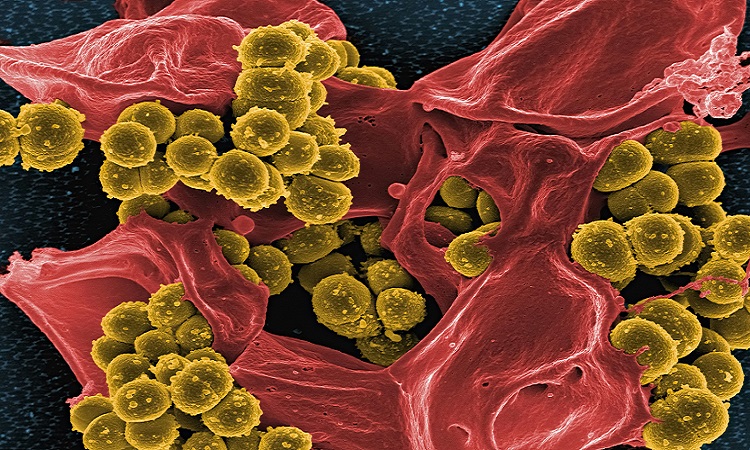There seems to be a stigma around STDs, as if once you contract one, your life changes for the worst. However, statistically speaking, it’s all an illusion. It’s all a “big nothing,” you might say, considering that a huge part of the population, dating and married, have an STD or will have one in their lifetime.
According to a CDC report, 20% of the U.S. population, or one in five people, have an STD or STI on any given day. Over $16 billion is spent every year on healthcare-related STD costs.
On a worldwide basis, the problem is even more common. The World Health Organization says 374 million new STD infections every year. Almost 130 million will contract chlamydia, 82 million will contract gonorrhoea (82 million), just over 7 million will contract syphilis, and 156 million will contract trichomoniasis (156 million).
Almost 500 million people already live with genital HSV (herpes), and 300 million women, including black women, have an HPV infection. STDs are not that unusual for many people in the U.S. and worldwide. Almost 300 million people have chronic hepatitis B
Do Condoms Prevent STDs?
Can You Get an STD from Skin-to-Skin Contact?
Some confusion exists about ways to transmit STIs or STDs. The clear answer is that exposure to an infected person’s genital fluids or direct contact with infected skin spreads STDs. This means that certain lovemaking acts can lead to infection, even in the absence of genital-to-genital contact.
Oral and genital herpes can spread via contagious sores, regardless of where they appear on the body. This means you can even get oral herpes without sexual contact, such as casual kissing on the cheek or lips.
HPV, or Human Papillomavirus, spreads through genital warts. Getting vaccinated for HPV can prevent infections from occurring. Syphilis, as well as Molluscum Contagiosum, a skin disease transmitted during sex, can spread through mouth sores or genital sores.
According to Very Well Health, casual contact with another person can occasionally lead to STD transmission, but rarely. Unprotected sex or using a condom that doesn’t cover the penis is the most common reason for STD transmission.
Furthermore, it’s important to remember that using a condom that covers your genitals does not guarantee complete protection. If your partner is infected and their genital fluids come into contact with your skin, skin-to-skin infections can occur.
In the case of cloth-to-skin transmission, like with a towel or passing from person to clothing and then to person, the cases are exceptionally rare for a positive accidental transmission. It’s just more common that you will catch an STD through sexual contact.
Using a Dating App for STD Dating
While there are dating apps/sites like Positive Singles and MPWH, there are also mainstream apps that offer STD filtering. Some interracial dating apps let you state your STD status and your preferred partner’s condition. This is a smart option since it avoids an awkward conversation later on.
New apps do need modern solutions to old dating problems. Today’s dating apps are all about giving you the customized dating experience you want rather than sorting through all the guys/girls you DON’T wish to. That’s why everyone’s dating online in 2022 rather than relying on old dating strategies.
Emerging Trends in STD Cases
In 2022, several emerging trends in STD cases are shaping the landscape of sexual health. Understanding these trends and their contributing factors is crucial for effective prevention and intervention strategies.
1. Increase in Certain Infections
- Gonorrhea and Syphilis: There has been a notable rise in cases of gonorrhoea and syphilis across various demographics. These infections, once thought to be under control, are now showing a resurgence, particularly among young adults and men who have sex with men (MSM).
- HPV: Human papillomavirus (HPV) infections continue to be prevalent, with persistently high rates among sexually active individuals, despite the availability of vaccines.
2. Demographic Shifts
- Young Adults: There is a significant increase in STD cases among young adults (aged 18-25). Factors such as inconsistent condom use, multiple sexual partners, and low awareness of STD risks contribute to higher infection rates in this demographic.
- MSM: Men who have sex with men continue to be disproportionately affected by STDs, including HIV, syphilis, and gonorrhoea. This demographic faces unique challenges related to stigma, access to healthcare, and preventive measures.
Factors Contributing to These Trends
- Changes in Sexual Behaviors: Shifts towards more casual and unprotected sexual encounters, influenced by social norms and dating app culture, contribute to the spread of STDs.
- Lack of Comprehensive Sex Education: Insufficient or inadequate sex education programs in schools and communities lead to gaps in knowledge about safe sexual practices and STD prevention.
- Barriers to Healthcare Access: Limited access to affordable healthcare services, including STD testing and treatment, particularly affects marginalized communities and underserved populations.
- Drug and Alcohol Use: Substance use, including alcohol and drugs, can impair judgment and increase risky sexual behaviours, leading to higher rates of STD transmission.
- Global Health Pandemics: Events such as the COVID-19 pandemic have disrupted healthcare services and preventive measures, potentially exacerbating STD transmission rates due to reduced access to testing and delays in treatment.
Impact of STDs on Public Health
Sexually transmitted diseases (STDs) have significant implications for public health and healthcare systems worldwide. Understanding their broader impact and challenges in prevention, testing, and treatment is crucial for addressing these issues effectively.
Broader Impact on Public Health
- Increased Healthcare Costs: STDs impose substantial financial burdens on healthcare systems due to the costs associated with testing, treatment, and long-term care for complications.
- Health Disparities: STDs disproportionately affect marginalized and underserved populations, exacerbating existing health disparities.
- Negative Health Outcomes: Untreated STDs can lead to severe health complications such as infertility, chronic pelvic pain, and increased susceptibility to HIV infection.
- Community Impact: STD outbreaks can strain local public health resources and disrupt community health, particularly in densely populated areas or during public health emergencies.
Challenges in Prevention, Testing, and Treatment
-
Limited Access to Healthcare Services: Many individuals struggle to access STD prevention services, including education, testing, and treatment, due to issues like lack of insurance, stigma, and geographic barriers.
-
Stigma and Misconceptions: Misinformation and stigma surrounding STDs often discourage people from seeking testing and treatment, leading to delayed diagnosis and increased transmission rates.
-
Antimicrobial Resistance: The increasing resistance of bacteria causing STDs, such as gonorrhoea, to antibiotics presents challenges in effectively treating infections, highlighting the need for ongoing surveillance and research.
-
Inadequate Sex Education: Insufficient or inconsistent sex education fails to adequately inform young people and other vulnerable populations about STD risks and preventive measures.
Read more: The Art of Seduction: Reclaiming Confidence with Herpes
Insights from Healthcare Professionals or Experts
Healthcare professionals and experts emphasize the importance of comprehensive STD prevention strategies that address social determinants of health, improve access to culturally competent care, and promote community engagement. They advocate for:
- Integrated Services: Integration of STD prevention, testing, and treatment services into primary care settings to enhance accessibility and reduce stigma.
- Education and Awareness: Continued efforts to educate the public about STD risks, prevention methods, and the importance of regular testing.
- Research and Innovation: Investment in research to develop new diagnostics, treatments, and vaccines for STDs, including emerging antimicrobial-resistant strains.
- Collaboration and Partnerships: Collaboration between healthcare providers, public health agencies, community organizations, and policymakers to implement effective STD prevention programs and policies.
Strategies for STD Prevention and Education
Effective prevention of sexually transmitted diseases (STDs) relies on education, regular testing, and the promotion of safe sexual practices. Here are practical tips and strategies for STD prevention and education:
Practical Tips for STD Prevention
-
Use Condoms Consistently: Condoms provide effective protection against STDs, including HIV, gonorrhoea, chlamydia, and HPV. Always use condoms during vaginal, anal, and oral sex.
-
Limit Sexual Partners: Reducing the number of sexual partners decreases the risk of STD transmission. Mutual monogamy with a partner who has tested negative for STDs is ideal.
-
Get Vaccinated: Vaccines are available to prevent certain STDs, such as HPV and hepatitis B. Check with your healthcare provider about vaccination recommendations.
-
Communicate Openly: Discuss sexual health and STD status with your partner(s) before engaging in sexual activities. Encourage honesty and transparency about sexual history and potential risks.
-
Practice Mutual Respect and Trust: Foster a supportive and respectful relationship where both partners feel comfortable discussing sexual health concerns, including STD testing and prevention.
Importance of Education and Regular Testing
-
Raise Awareness: Educate yourself and others about STDs, including symptoms, transmission modes, and prevention strategies. Knowledge empowers individuals to make informed decisions about their sexual health.
-
Regular Testing: Get tested regularly for STDs, especially if you have multiple sexual partners or engage in high-risk behaviours. Early detection allows for timely treatment and reduces the risk of complications.
-
Healthcare Provider Visits: Schedule regular check-ups with your healthcare provider for comprehensive sexual health screenings and discussions about STD prevention.
Resources for Learning More
-
Centres for Disease Control and Prevention (CDC): Offers comprehensive information on STDs, prevention guidelines, and resources for healthcare providers and the public. CDC STD Information
-
Planned Parenthood: Provides educational resources, testing services, and information on sexual health topics, including STDs and prevention methods. Planned Parenthood STD Information
-
ASHA (American Sexual Health Association): Offers educational materials, support resources, and information on STD prevention and treatment. ASHA STD Resources
-
Local Health Departments: Check your local health department’s website for information on free or low-cost STD testing and prevention services available in your community.
Future Outlook and Predictions
Looking ahead, the landscape of sexually transmitted diseases (STDs) is poised for evolution, driven by advancements in technology, changes in societal norms, and ongoing public health efforts. Here’s a glimpse into future trends, innovations, and the importance of continued research and community engagement:
Predicted Future Trends in STD Rates and Prevention Efforts
-
Emergence of New STD Strains: As antibiotic resistance continues to rise, there may be challenges in treating common STDs like gonorrhoea and syphilis. This could lead to higher transmission rates and the need for alternative treatment options.
-
Shifts in Sexual Behaviors: Changes in sexual behaviours influenced by social media, dating apps, and societal norms may impact STD transmission rates among different demographics.
-
Youth and Young Adults: Targeted prevention efforts are likely to focus on youth and young adults who often engage in higher-risk sexual behaviours and may benefit from increased access to education and resources.
Potential Innovations in STD Testing, Treatment, and Public Health Initiatives
-
Advancements in Testing Technologies: Development of rapid, point-of-care STD tests that are more accessible and convenient for users, potentially leading to earlier diagnosis and treatment.
-
Telemedicine and Virtual Care: Expansion of telehealth services for confidential STD consultations, testing, and treatment, enhancing access for underserved populations and those in remote areas.
-
Vaccine Development: Continued research into vaccines for STDs such as HIV and herpes, with the potential to reduce transmission rates and improve public health outcomes.
Importance of Ongoing Research and Community Engagement
-
Research: Ongoing research is essential to understand evolving trends in STD transmission, identify effective prevention strategies, and develop innovative treatments. Funding and support for research initiatives are critical to advancing our knowledge and capabilities in combating STDs.
-
Community Engagement: Collaboration among healthcare providers, public health agencies, community organizations, and advocacy groups is vital. It promotes STD awareness, encourages regular testing, and helps reduce the stigma associated with STDs. Engaging communities in education and prevention efforts fosters a supportive environment for addressing sexual health issues.
Conclusion
As we look towards the future, addressing STD challenges demands a multifaceted approach. This includes integrating technological innovations, robust public health initiatives, and community-driven strategies. Prioritizing research and embracing innovation in testing and treatment are crucial. Fostering inclusive community engagement plays a key role in reducing STD rates, improving health outcomes, and promoting sexual health equity for all.
Read more: How-To Guide: HIV DATING SITE Essentials For Beginners.







